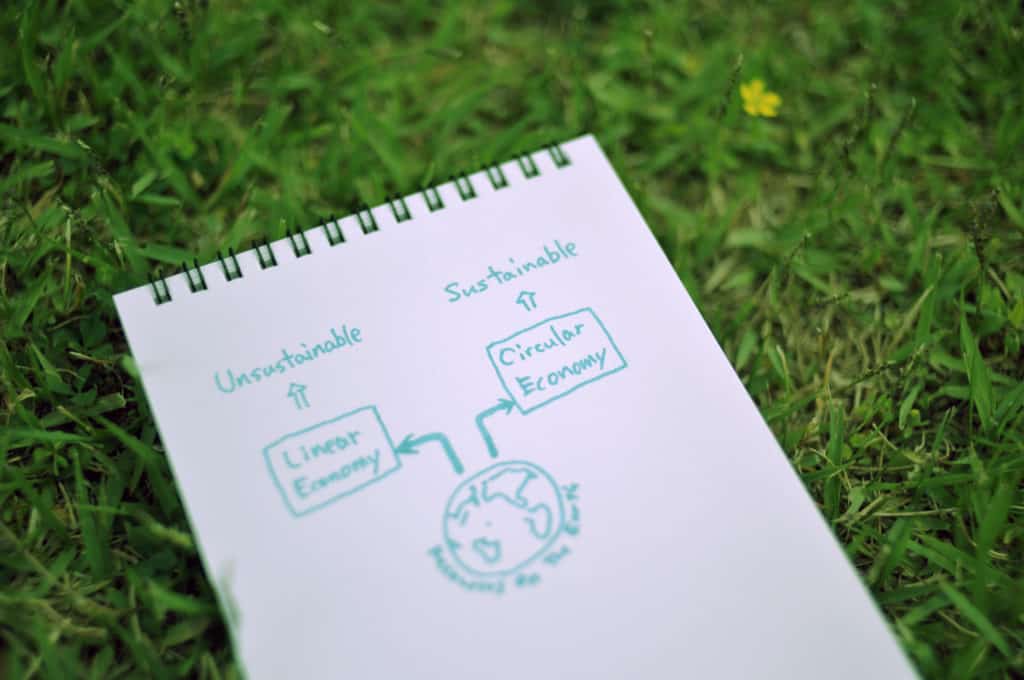From the outset of the Industrial Revolution, societies across the world have followed a linear pattern of consumption. The European Parliament describes this as “take-make-use-dispose” pattern of growth and consumption. Increasing affluence and consumerism have resulted in enormous quantities of waste, and there is a need to break this pattern.
In contrast to the linear pattern of consumption, a circular economy highlights the importance of repairing and reusing what we consume, implementing recycling and organic recycling. This will help us to drastically reduce the billions of tons of waste that get dumped into our landfills and oceans every year. And there are business benefits too.
What is a circular economy?
Circular economy focuses on using and reusing available capital and resources in an efficient manner. It lays emphasis on bringing value to products throughout their life cycles.
The same EU report concerning circular economy revealed the following:
- Companies in the European Union can save $717 million annually
- Reduce annual greenhouse gas emissions by 2 to 4%
- Create 580,000 jobs in the EU
Although similar studies have not been conducted elsewhere in the world, the global implications are huge. Many billions of dollars can be saved, while greenhouse gases can be reduced by a large proportion. Repairing and reusing products, implementing recycling and organic recycling can create millions of jobs around the world.
Other than the obvious social and environmental benefits, adopting a circular economy is advantageous for businesses too. Let’s take a look at the 5 biggest benefits of the circular economy model for businesses.
Advantages Of Circular Economy For Businesses
Bolster against an unstable future
As compliance requirements and regulations change across borders, organic recycling will be a major theme in the coming years. Governments and markets will favor companies that adopt sustainability and environmentally friendly practices. As a result, a circular economy approach will help you future-proof your business against vulnerabilities that may arise due to penalties, manufacturing processes, and consumption trends.
Gain competitive edge
Many businesses are uncomfortable with the idea of adopting a non-linear product life cycle. As a result, some of your competitors may continue to produce and contribute to waste, and refrain from adopting organic recycling. Adopting a circular economy right now will help you move past your competitors and gain an advantage over them, both in terms of compliance and brand image.
Improve brand image and brand loyalty
Consumers adore brands that are sustainable and demonstrably committed to improving environmental conditions. Using eco-friendly packaging is an excellent way to do that. Adopting circular economy as part of your branding strategy will help you build a loyal customer base and an enviable brand image. If you can prove that your products stand the test of time and can be used, reused, and repaired in time, you will quickly build a loyal following.
Reduce waste and streamline production
The circular economy stresses the importance of prolonging the life of products and repairing and reusing them. This directly leads to a reduction in waste and helps you streamline production based on intelligence. Predictive models and the Internet of Things (IoT) help provide ongoing maintenance and servicing and eliminate the need for wasteful manufacturing. Ingenious packaging solutions such as compostable packaging help reduce non-biodegradable solid waste.
Innovate and scale-up
While prolonging product lifecycle and adopting a circular economy can reduce profits in the short term, they provide a valuable opportunity to innovate.
Reduced dependence on manufacturing and raw materials will help you scale up in other vectors. You can adopt innovative business models such as Product-as-a-Service (PaaS), refurbishing for profit, and share assets with third-party partners.
The circular economy is an excellent business strategy
Repairing and reusing products, and implementing organic recycling comes with multiple business benefits. To begin with, businesses that adopt the circular economy model will find it easier to comply with waste management regulations. In addition, businesses gain a competitive edge and enhance brand loyalty as well. This is often the result of an eco-friendly brand image and enhanced after-sales support. In the long term, a circular economy also helps businesses to scale up, innovate, and streamline production in the direction of Zero Waste.
If you are wondering how you can use compostable packaging to join the circular economy model and future-proof yourself, contact us today.














